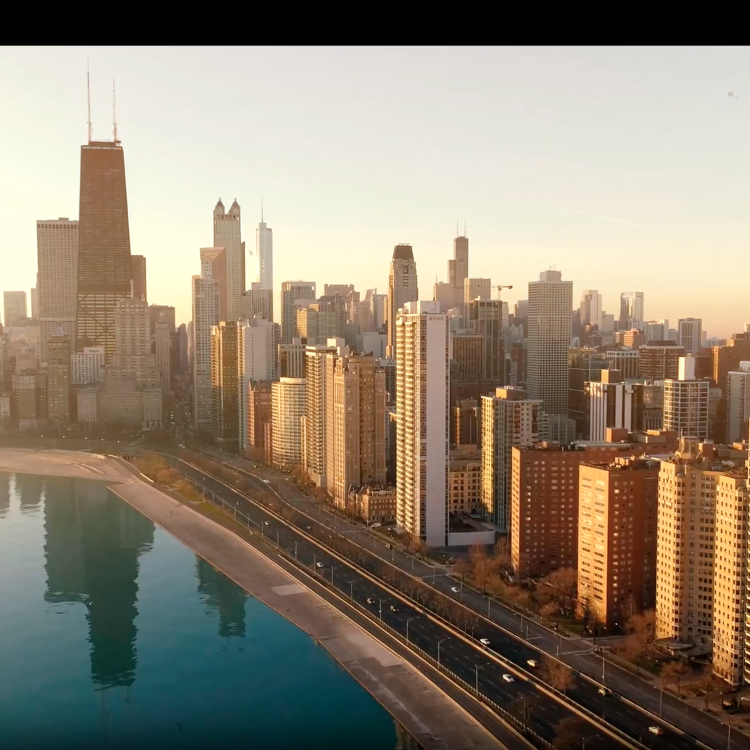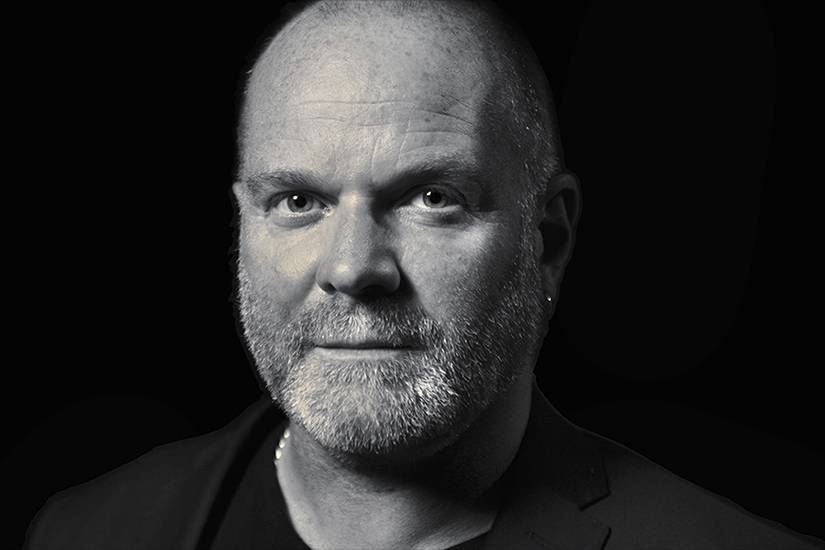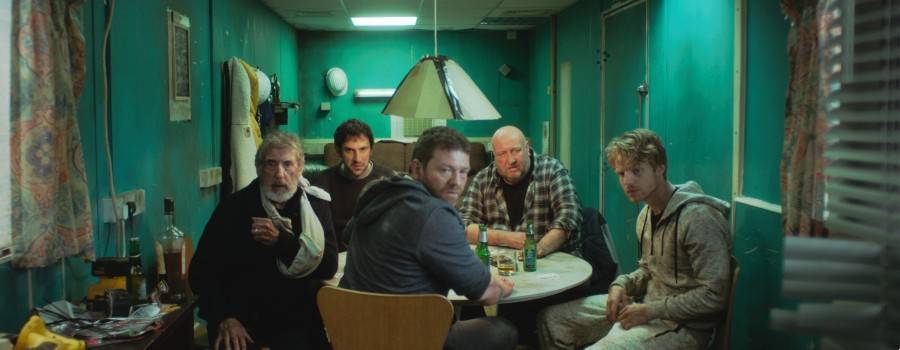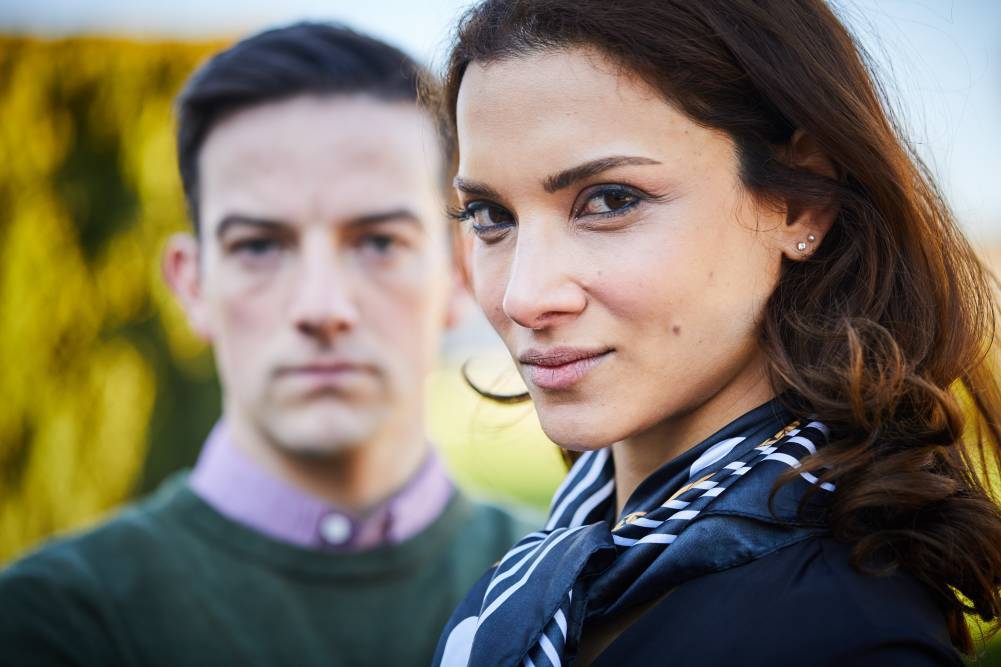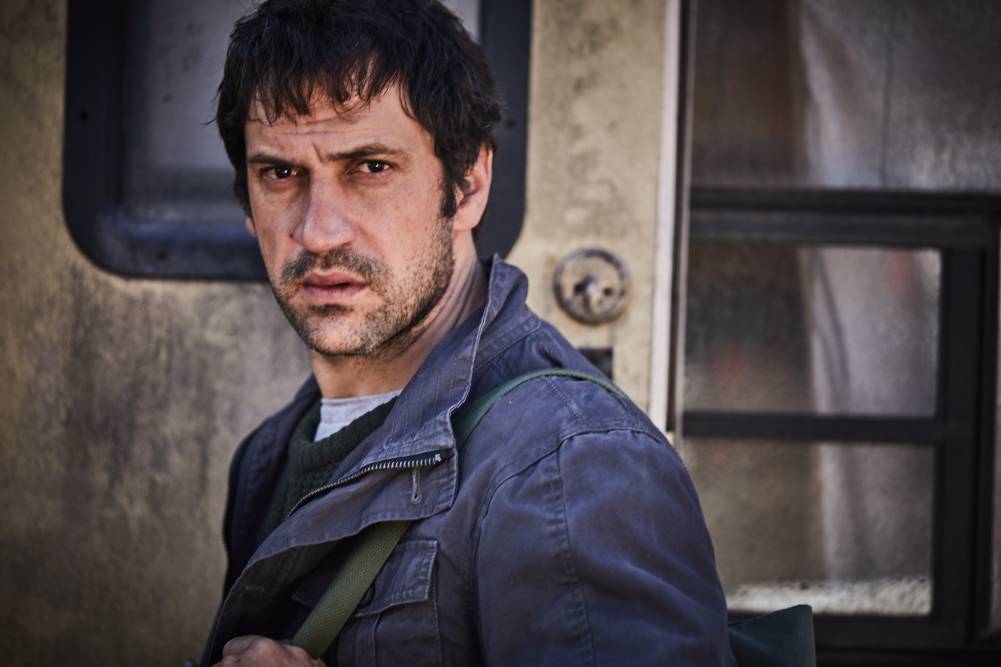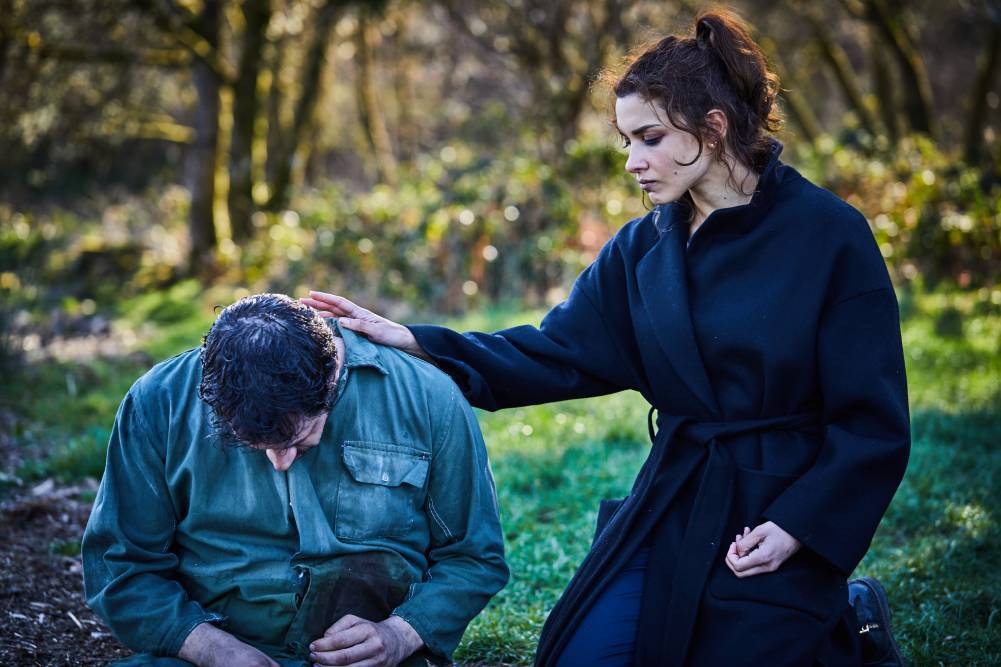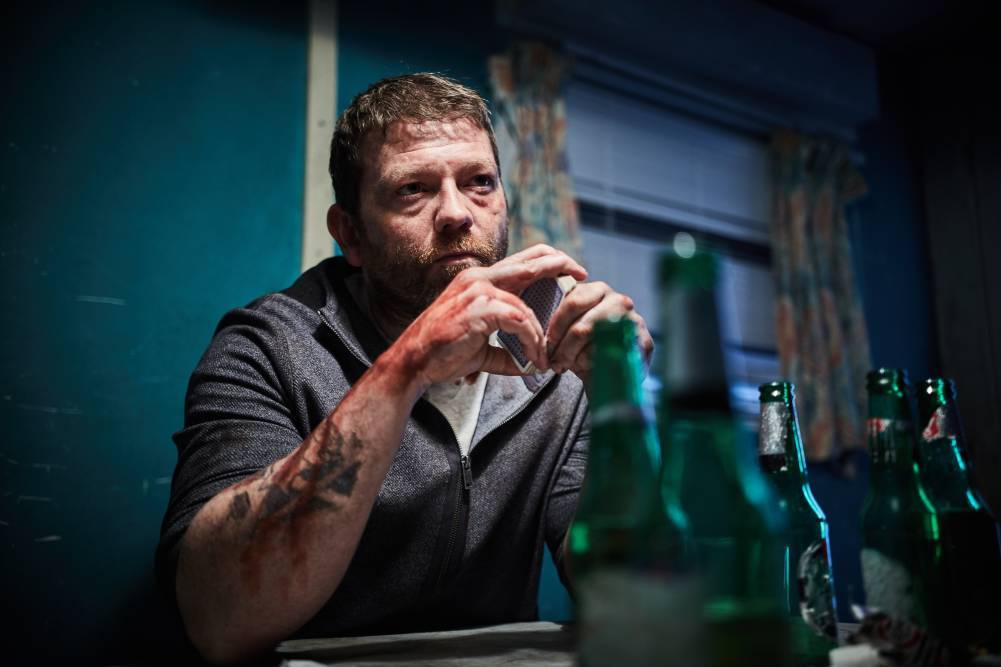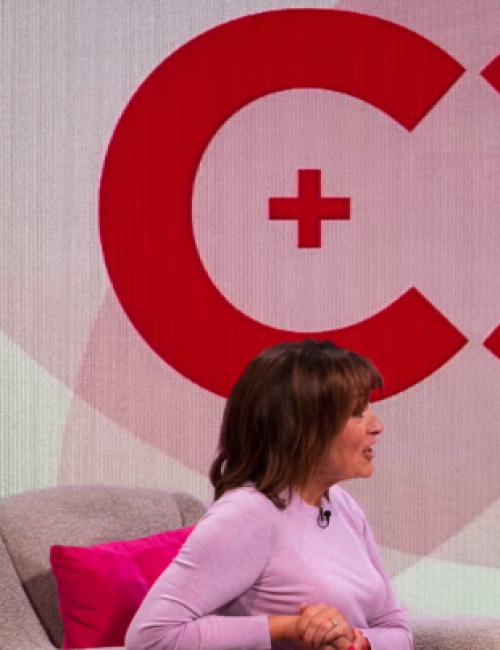Writer, director and lecturer Will Jewell on the power of collaboration in his new film Concrete Plans
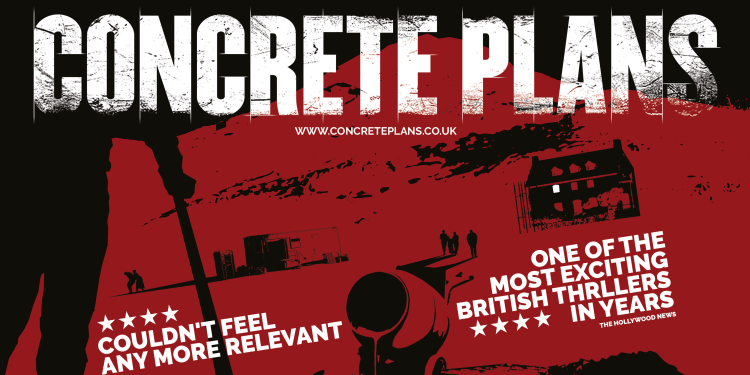
Article by: Gaynor Orvis
Publication date:Will Jewell is a Brighton-based writer and director of the gritty, dark new feature film, Concrete Plans, set in the Welsh countryside. The film has already received glowing reviews, with Hollywood News naming it 'one of the most exciting British thrillers in years.'
Will has lectured at Ravensbourne on the Digital Film Production and Digital Television Production courses for over ten years and during this time he has balanced teaching with working in industry.
Here he talks about his inspiration for the film, the power of collaboration, and why finding a close-knit team of trusted professionals is so important in the film industry.
questions for Will
Thanks for catching up with us Will! Firstly, how did you find the story for the film and what was your inspiration?
It actually grew out of a short film script I'd written years earlier which essentially became the midpoint Portakabin scene in the film, in which a group of people resort to a turn of the cards to determine who takes sole blame for a crime all five are implicated in.
About six years ago the producer Rob Alexander (credits include The Man Who's Mind Exploded and Gary Numan: Android in La La Land) and I were looking for a low-budget feature idea. 'Low budget' essentially translates to small cast and limited locations, so this idea about builders living in a Portakabin in the grounds of a remote farmhouse fitted the bill.
I'd done a bit of work on building sites when I was a teenager and it all seemed very male hierarchical with loads of banter (I was a long-haired student at the time, so it's unsurprising) And combine this with lethal power tools — so I'd always thought it was a great place to set a drama or thriller!
I also dislike the fact that British thrillers often lazily rely on a character casually pulling out a gun, but firearms aren't available on every corner like in the US, so I wanted the film to feel visceral and real. In the story, when things turn bad, characters just have what is to hand to defend themselves; rusty B&Q power tools!
The film is a bit of a combination of social realism in the vein of Ken Loach or Andrea Arnold for the first half, but it then moves into darker territory as the builders are ripped off by the affluent farmhouse owner (played by Kevin Guthrie who starred in Fantastic Beasts and Sunshine on Leith) and things unravel and tempers fray. Stylistic influences on the film beyond social realism include Scorsese, Sergio Leone, and more recent directors like Jeremy Saulnier.
Can you tell us a little bit about your cast and how they were chosen for the part?
The cast we secured were superb and we punched way beyond the modest budget on account of the script. The builders were played by Steve Speirs (Extras, Inside No 9), Goran Bogdan (Fargo, Last Panthers), Charley Palmer Rothwell (Looted, Dunkirk), William Thomas (Twin Town, Gavin & Stacey) and Chris Reilly (Industry, Everest) with Amber Rose Revah (The Punisher) playing the homeowner's fiancee and James Lance (Bronson, Alan Partridge) playing his accountant.
The cast has been universally praised in the reviews and what's interesting is that many of the cast (Steve, James, William) are famous for comedy but were playing against type in far darker, gritty roles.
How has the film been received?
The film premiered at Frightfest before Christmas and the reviews have been great. According to the Hollywood News it was 'one of the most exciting British thrillers in years.' The reviews have also picked up a lot on the social and political undertones ,as the film was developed over five years during which time we've had the referendum and the country has felt quite polarised and on edge. Those elements are woven into the fabric of the film.
We were due a cinema release in November, but unfortunately Covid put paid to that so it's a digital release across all platforms – Amazon, Googleplay, iTunes, Sky, and it's been going down very well, thankfully!
What were the biggest challenges in making the film?
We shot the film in 15 days, which was pretty nuts. As is probably the case for most low-budget indies, it was the budget and schedule that were the biggest challenges. The film took five years to get to production as the budget was gradually stitched together over that period.
Film Wales were the principle backer with some private finance, tax breaks and sales agents advance too. We had to move dates back twice as the budget wasn't fully there yet, and ultimately it was lower than anticipated. The effect of that is the number of days you have to shoot contracts. It was going to be 24 days, then shrank to 18, then at the last minute became 15 as we lost a chunk of budget.
At Ravensbourne, film students often shoot for four-five days on their shorts, so 15 days for a feature is fairly crazy. Particularly for an ensemble with special effects, stunts, fight scenes, etc. It made for a pretty unforgiving schedule. It was long, long days and little sleep. And even then we were still dropping scenes daily as we were running out of time, so every night as well as watching back the day's rushes I'd be rewriting the script to pick up dropped story beats and write them into scenes we'd not shot yet.
There were other challenges too, such as the fact we had the amazing Paul Hartnoll writing the score, but his band Orbital were headlining festivals that summer, so we knew we had a hard cut-off date to finish the music. But the edit overran, so he was trying to score a film that wasn't locked as we were still cutting, so that was a bit tricky. He did an amazing soundtrack in the end though!
Several Ravensbourne graduates worked on the film. Why do you think collaboration is so important?
Yes, we had quite a bit of Ravensbourne involvement. Rave gets a special thanks in the credits and the Second Unit was mostly Digital Film Production (DFP) grads I'd taught. Arran Green was 2nd unit Director of Photography and Emmet Holmes Boyes was assisting him for most of the shoot. The sound designer/mixer was Rave grad Gareth Woods and when we were at Cheat Post House doing the grade, the Colourist Assistant stuck his head around the door and it was John Layton, another DFP grad! The Editor was Dave Wigram who I've known for ages but taught on the Editing and Post Production course here for years.
As I'd been developing the idea for five years before the shoot, I'd used many of the assets as a live case study in the class so there's a raft of DFP grads who will be very familiar with the evolution of this film.
In terms of collaboration, it is vital. That was one of the biggest things you realise in stepping up from shorts to features. In shorts while you collaborate, you can be across almost everything, but on a feature there's no way that's feasible and you have to delegate and you always seek to work with great people that you trust. As director, your job is often pulling everything together to ensure you're keeping the train on the tracks and going in the right direction.
Ravensbourne film students are held in very high regard across the industry. Why do you think that is?
They really are. There tends to be an impressed nod when Ravensbourne is mentioned, usually followed by a story about working with a grad who smashed it. I think the industry-education bridge ethos of Ravensbourne runs through everything and instils a real feeling in the students that industry is just a step away, so they're pretty fearless about taking that leap.
I think in some film schools it can all feel theoretical and that industry is this 'other' distant thing on the horizon. I've got in the habit of reading the credits in UK films and TV dramas and I reckon weekly I see the name I recognise of a student I've taught.
Is there something you enjoy most about teaching at Ravensbourne? What gets you up in the morning?
It pained me that in making the film I'd be away for nine months of pre-production, so I had to move from lecturing on a regular day-to-day basis on Digital Film Production and Digital Television Production because the shoot and post would take such a chunk of time. I'm now a sessional. But I do really miss being in the building lately.
There's always a (noisy) creative buzz in the air at Ravensbourne, and while that can be counterproductive when trying to teach in an open plan space, it's something I really miss with remote teaching now. I do get a buzz seeing students really find their feet and confidence, rising to their potential and shooting an amazing short or writing a great script or achieving some other industry-worthy feat.
I think teaching also helps me in my own writing and directing as watching, reading and assessing so many projects makes you really hone your analytical skills in deconstructing why something is or isn't working.
Do you have any advice to someone wishing to pursue a career in film?
If you have that itch to scratch you have do it! I ended up working for the Council for years, knowing I wanted to work in film or music but I hadn't pursued it. But gradually the pull grew too much so I just had to quit and follow those ambitions.
Watch the Concrete Plans trailer

